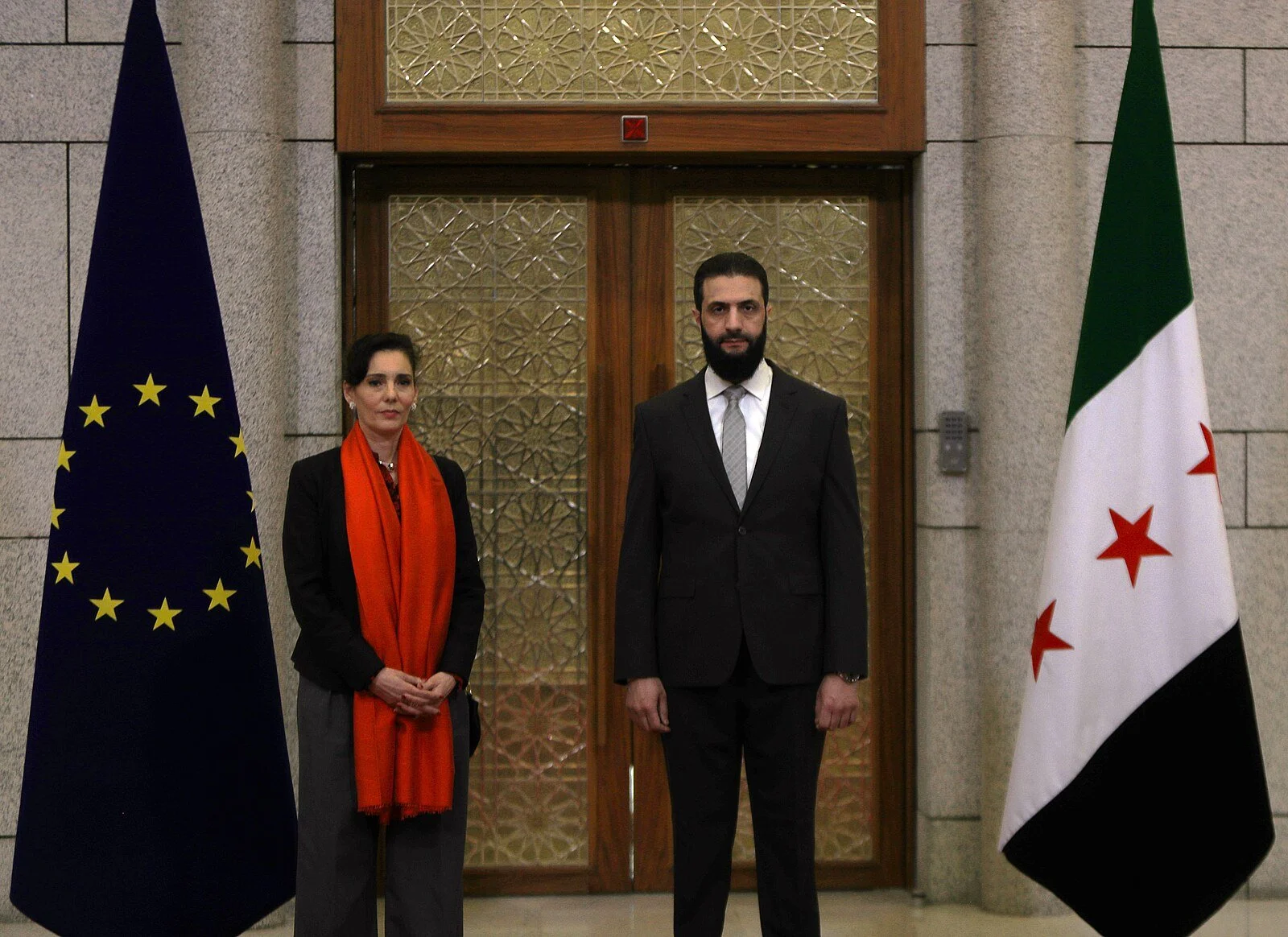Syria and Israel Move Toward Unlikely Talks as Al-Sharaa Makes an Appearance on the World Stage
Hadja Lahbib and Syrian President Ahmed al-Sharaa discuss EU cooperation in Syria (Wikimedia Commons)
Syrian President Ahmed al-Sharaa, on September 17, said that talks with Israel could yield a security agreement “within days,” as he prepared to address the UN General Assembly in New York on September 24. The remarks marked the first time a Syrian head of state has spoken at the UN in nearly six decades, underscoring his bid to end years of isolation and reposition Syria on the world stage.
That rare appearance is more than symbolic. It reflected how al-Sharaa is trying to remake Syria’s diplomatic posture after the fall of former president Bashar al-Assad’s regime. He rose to power earlier this year after a coalition of former rebel leaders and technocrats selected him to lead a transitional government following Assad’s ouster. Authorities in Damascus stated that he met with U.S. officials and figures, including Marco Rubio and former U.S. General David Petraeus, on the sidelines of the UN gathering. These meetings highlight how far Syria’s international isolation has begun to unravel and signal a newfound era in diplomatic relations.
In New York, al-Sharaa called for the lifting of international sanctions and presented Syria as a country ready for reconstruction and reintegration. He also warned that Israeli military actions risk undermining American interests, framing the negotiation with Israel as a test of international legitimacy.
The talks with Israel are anchored in the 1974 Agreement on Disengagement, a deal brokered after the Yom Kippur War to keep Israeli and Syrian forces apart on the Golan Heights. For decades, the pact created a UN-patrolled buffer zone that reduced the risk of direct clashes. But years of civil war, repeated Israeli airstrikes, and the presence of Iranian-backed militias inside Syria have severely weakened the buffer zone. Now, Israel is pushing for firm guarantees that hostile groups will be kept away from its border, while Syria is demanding an end to routine Israeli airspace violations and recognition of its territorial integrity.
Even as al-Sharaa presents himself on the world stage as a statesman, tensions at home remain unresolved. According to Etana Syria, there is little evidence of inclusive governance or political openness. His coalition of former rebel leaders and technocrats is fragile, and many Syrians worry that power is consolidating within a narrow inner circle. Hardliners in Damascus may resist any concessions to Israel or gestures of conciliation toward the West. Regional powers, including Iran and Russia, must also decide whether to support or obstruct this turn toward diplomacy.
For people living near the Golan frontier, the stakes are immediate. A functioning security agreement could reduce airstrikes, ease border tensions, and allow reconstruction to begin in war-ravaged towns. Failure, however, would likely mean a return to violence. Syria now stands at a critical juncture, as it faces the possibility of a quieter future or the risk of another cycle of conflict.

